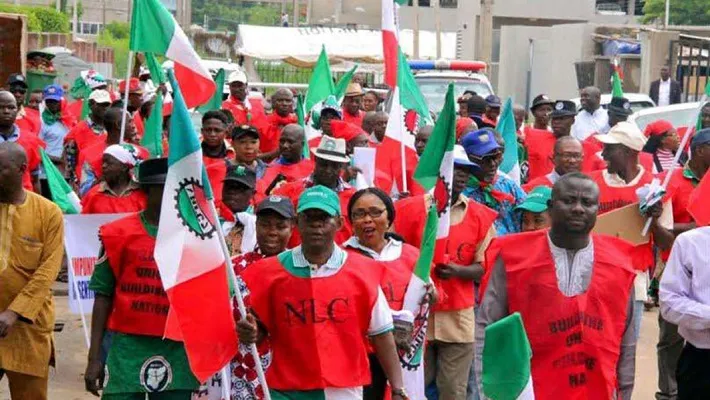Labour unions across Nigeria have voiced strong opposition to a proposed amendment to the Electricity Act, which includes a controversial provision that seeks to outlaw industrial action within the nation’s power sector. The proposed legislative change, currently being debated at the National Assembly, aims to bar electricity workers from engaging in strikes or other forms of protest, a move that has drawn widespread criticism from organized labour.
The Nigeria Labour Congress (NLC), Trade Union Congress (TUC), and the National Union of Electricity Employees (NUEE) have jointly condemned the proposal, describing it as an attack on democratic freedoms and the constitutional rights of workers. According to the unions, the bill threatens to undermine the rights of electricity workers to demand improved working conditions, fair wages, and safety measures through lawful protest and collective bargaining.

At a recent media briefing in Abuja, the NLC President, Joe Ajaero, described the bill as an unjust and dangerous step toward suppressing the voices of workers. He stressed that the right to strike is a fundamental element of labour relations in any democratic society, and any attempt to remove it through legislation amounts to tyranny.
Ajaero noted that the bill appears to be a direct response to past industrial actions by electricity workers, which have occasionally led to nationwide blackouts and disruption of services. He accused the government of focusing on silencing workers instead of addressing the root causes of the unrest in the power sector, such as unpaid salaries, poor working environments, and unresolved issues from the privatization of the electricity industry.
Echoing the same sentiment, the TUC President, Festus Osifo, warned that the proposed strike ban could backfire and escalate tension within the sector. He maintained that the ability to stage industrial action is a legitimate means for workers to press home their demands and should not be criminalized under any circumstances.
Osifo emphasized that rather than promote peace and efficiency, the amendment would introduce fear and resentment into the workplace, discouraging open dialogue between employers and employees. He called on the National Assembly to withdraw the bill and engage in genuine consultations with all relevant stakeholders, including labour unions and civil society groups.
The National Union of Electricity Employees, which represents the majority of workers in the power sector, described the bill as a clear act of provocation. In a strongly worded statement issued by its General Secretary, Dominic Igwebike, the union declared its readiness to resist the bill through protests and legal action. Igwebike warned that banning strikes in the power sector would set a dangerous precedent and embolden future attempts to suppress workers’ rights in other critical industries.
He stated that electricity workers are not saboteurs but professionals fighting for fair treatment and better conditions. Any effort to silence them, he said, will not go unchallenged. He urged lawmakers to consider the long-term consequences of such legislation and reminded them of Nigeria’s commitments to international labour laws that guarantee the right to peaceful assembly and protest.
Legal experts and civil society organizations have also expressed concern over the implications of the proposed amendment. Prominent human rights lawyer, Femi Falana (SAN), argued that the bill contradicts the provisions of Nigeria’s Constitution and international conventions such as those of the International Labour Organization (ILO), which uphold the right to organize and strike.
Falana warned that any attempt to pass such a law would be met with constitutional resistance in the courts and would stain Nigeria’s democratic credentials. He urged the National Assembly to focus on meaningful reforms in the electricity sector, including addressing corruption, inefficiency, and poor infrastructure, instead of targeting workers.
Similarly, the Socio-Economic Rights and Accountability Project (SERAP) described the bill as regressive and anti-worker. In a statement, the organization urged lawmakers to abandon the proposal and pursue inclusive reforms that prioritize both service delivery and the protection of workers’ rights.
Proponents of the amendment argue that industrial actions in the power sector pose serious threats to national security and economic stability, given the sector’s central role in supporting industry and households. They maintain that the law is necessary to prevent disruptions in electricity supply and ensure the continued operation of essential services.
However, labour leaders insist that the real issues affecting the sector lie in its mismanagement and lack of transparency. They argue that punishing workers will not solve systemic problems, and instead call for a holistic review of the sector’s governance, funding, and regulatory framework.
As deliberations continue at the National Assembly, the fate of the proposed amendment remains uncertain. However, labour unions have vowed to resist the bill in its current form, warning that any attempt to enact it into law without their input will be met with nationwide demonstrations and potential strikes. The coming weeks will be critical in determining whether the government will push ahead with the controversial proposal or yield to growing pressure from the labour movement and civil society.
Support InfoStride News' Credible Journalism: Only credible journalism can guarantee a fair, accountable and transparent society, including democracy and government. It involves a lot of efforts and money. We need your support. Click here to Donate
